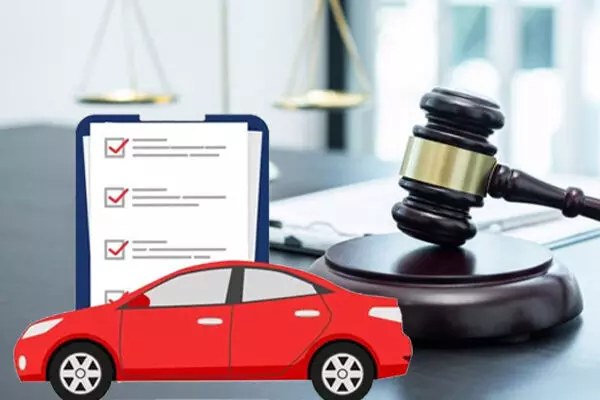- Home
- News
- Articles+
- Aerospace
- Agriculture
- Alternate Dispute Resolution
- Banking and Finance
- Bankruptcy
- Book Review
- Bribery & Corruption
- Commercial Litigation
- Competition Law
- Conference Reports
- Consumer Products
- Contract
- Corporate Governance
- Corporate Law
- Covid-19
- Cryptocurrency
- Cybersecurity
- Data Protection
- Defence
- Digital Economy
- E-commerce
- Employment Law
- Energy and Natural Resources
- Entertainment and Sports Law
- Environmental Law
- FDI
- Food and Beverage
- Health Care
- IBC Diaries
- Insurance Law
- Intellectual Property
- International Law
- Know the Law
- Labour Laws
- Litigation
- Litigation Funding
- Manufacturing
- Mergers & Acquisitions
- NFTs
- Privacy
- Private Equity
- Project Finance
- Real Estate
- Risk and Compliance
- Technology Media and Telecom
- Tributes
- Zoom In
- Take On Board
- In Focus
- Law & Policy and Regulation
- IP & Tech Era
- Viewpoint
- Arbitration & Mediation
- Tax
- Student Corner
- AI
- ESG
- Gaming
- Inclusion & Diversity
- Law Firms
- In-House
- Rankings
- E-Magazine
- Legal Era TV
- Events
- News
- Articles
- Aerospace
- Agriculture
- Alternate Dispute Resolution
- Banking and Finance
- Bankruptcy
- Book Review
- Bribery & Corruption
- Commercial Litigation
- Competition Law
- Conference Reports
- Consumer Products
- Contract
- Corporate Governance
- Corporate Law
- Covid-19
- Cryptocurrency
- Cybersecurity
- Data Protection
- Defence
- Digital Economy
- E-commerce
- Employment Law
- Energy and Natural Resources
- Entertainment and Sports Law
- Environmental Law
- FDI
- Food and Beverage
- Health Care
- IBC Diaries
- Insurance Law
- Intellectual Property
- International Law
- Know the Law
- Labour Laws
- Litigation
- Litigation Funding
- Manufacturing
- Mergers & Acquisitions
- NFTs
- Privacy
- Private Equity
- Project Finance
- Real Estate
- Risk and Compliance
- Technology Media and Telecom
- Tributes
- Zoom In
- Take On Board
- In Focus
- Law & Policy and Regulation
- IP & Tech Era
- Viewpoint
- Arbitration & Mediation
- Tax
- Student Corner
- AI
- ESG
- Gaming
- Inclusion & Diversity
- Law Firms
- In-House
- Rankings
- E-Magazine
- Legal Era TV
- Events
Madras High Court considers query regarding appeals under Motor Vehicles Amendment Act

Madras High Court considers query regarding appeals under Motor Vehicles Amendment Act
Justice PT Asha, whilst considering a query forwarded by the Madras High Court Registry as to whether appeals whose value was less than one lakh rupees could be entertained in view of the amendment brought in by the Motor Vehicles Amendment Act 2019, observed that the right to appeal accrued on the date of filing the claim petitions and therefore the amendment was not applicable to claims filed prior to the amendment.
"the right of appeal had crystallised on the appellant-Insurance Company even on the date of filing of the claim petition before the Tribunal. Therefore, considering the march of Law in this regard, the filing of an appeal against an Award of less than a sum of Rs.1,00,000/- can be entertained in respect of appeals arising out of claim petitions filed prior to 01.04.2022."
The query was put forward to all counsels especially those practicing before the Motor Accident Claims Tribunal.
Mr. D Bhaskar, learned Counsel relied on the decision of Madhya Pradesh High Court [Abdul Khair @ Abul Khair Vs. Shantilal] wherein the court had observed that since the award was passed prior to the amendment, the provisions as they existed prior to the amendment would apply.
Mr. K Vinodh, learned Counsel on whose appeal the query was raised submitted that the substantive right to appeal arose on the day of filing the claim petition itself. To buttress his submission, reliance was placed on the decisions of various high courts. In the State of Punjab and Others v. Bhajan Kaur and Others the Supreme Court held that a change in the substantive law, as opposed to adjective law, would not affect the pending litigation unless the legislature has enacted otherwise, either expressly or by necessary implication.
Mr. Michael Visuvasam, learned Counsel while relying on precedents, also submitted that the right to appeal accrued on the institution of application before the Tribunal and this right is not taken away by subsequent enactments since what has already accrued cannot be taken away. In such circumstances, the appeal would be considered as one filed under the earlier enactment.
The court took note of the decisions relied upon by the counsels. In Ramesh Singh and another v. Cinta Devi and others, the Supreme Court had clearly laid down that the right of appeal would crystallize upon the appellant on the date of the institution of the application before the Tribunal of the first instance. Therefore, since the appeal is nothing but a continuation of the suit, it would only be the earlier enactment that would cover the lis. This legal position was followed in other legal precedents also.
In view of the same, the court directed the registry to number the appeals and post them for admission.



